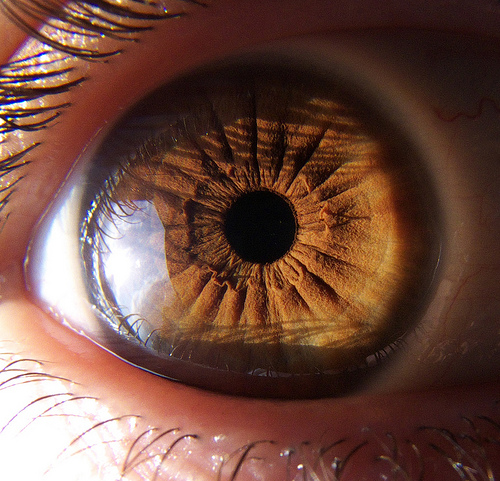1)WHAT ARE PARASITES?

Parasite: Root in Latin parasitus, root in Greek parsitos.
Parasites are organisms that extract their food, nutrition and shelter by living in or on another organism, causing damage and distraction to the host. More than 100 different types of parasites are known to use humans as their hosts. There are many species of parasites that show no socioeconomic boundaries and may be found in all climates and not only in third world countries.
There are five groups of parasites known today, these include the following:
- Roundworms
- Tapeworms
- Single Cell parasites – protozoa infections
- Flukes
- Spirochetes
“Parasites are a major cause of infections and other illnesses” according to Dr. Theodore Nash of the National Institute of Allergy and Infectious Diseases in Bethesda, Maryland USA. The Centre for Disease Control and Prevention in Atlanta, Georgia estimates that Giardia affects approximately 100,000 to 1,000,000 people in the USA every year.
Where do parasites come from?
They are omnipresent on this globe. That means that they are present everywhere on planet earth. They are part of nature’s recycling system and exist in open waters, mountain streams and lakes, in soil of every kind, in uncooked meat including fish, and are even airborne. They are scavengers and opportunists that are ingenious in the art of surviving.
The most common water born parasites in North America today, Giardia and Cryptosporidium are not killed through chlorinating.
2)Parasites Case show you by Iiridoogy

Radii Solaris (Minor)/(major) Autointoxification, Parasites
This sign resembles the spokes on a bicycle wheel. They appear as dark brown/black grooves in the iris and are seen radially from the frill outwards with the base wider than the tip. They represent inherent weakness in the bowel area and are indicative of a toxic, slow moving bowel. This is most commonly found in the biliary iris as a constitutional sign. When these are found to be pronounced in the iris, special attention may be needed to take care of the bowel.
Radii Solaris are also usually associated with sinus problems, toxic headache and other toxic symptoms. Radii solaris indicate nerve weakness and are a sign of insufficiency to the organ, gland and tissue field areas into which they disperse in the iris. If seen in the adrenal
3)The Eye of a “chocaholic”!

This person has a genetic blue iris. The white fibres throughout the eye suggest that the body is in an acidic state (rather than a healthy alkaline state). This is a fairly acute or recent occurrence. On the other hand, the yellow colouring suggests other problems that have been more chronic – especially the overburdened lymphatic system.
The lymphatic system is one of the body’s cleansing mechanisms. Its job is to keep cells of the body clean from toxins and bacteria, support the immunity of the body and to transport fats and fat-soluble vitamins around the body.
Interestingly, the mucous membranes of the intestines contain peyer’s patches (areas of lymphoid tissue). Their job is to prevent toxins, poisons, undigested food proteins, bacteria and other nasties from entering the blood stream, and this is precisely where a thorough bowel detoxification assists the lymphatic system to cleanse!
The whitish circle around the pupil (the dark circle in the middle) indicates that the pH level of this individual’s stomach is over-acidic (which can occur as a result of eating too much sugar) while the yellow patches within this circle indicate that the problem has become a bit more chronic. The little spokes radiating from the pupil suggest that there may be parasites present.
A bowel cleanse can help to clean out the lymphatic system and assist in the removal of any parasites. Parasites can cause nutrient deficiencies by using the nutrients that we eat to keep themselves alive.
They can also contribute to lethargy, excess weight (especially around the torso of the body) or an underweight body (due to robbing the body of nutrients), constipation, stomach bloating, blood sugar fluctuations, and food cravings – especially sweet and fatty foods or junk food. Furthermore, parasites can give off cortisol which can contribute to feelings of anxiety or even insomnia.
The World Health Organisation estimates that 3.5 billion people suffer from some sort of parasitic infection – and this includes people in developed countries – not just third world nations as some would think!
In the two cases where Hill named an organ or body part that actually might be related to the patient’s problem, she was still quite inaccurate. In the slide of a woman with daily headaches, Hill saw “toxins from the bowel dumping into the head area” and blamed “parasites” for the problem. For a woman with hypoglycemia, Hill cited an undefined “glandular problem, ” but she also reported a “possible thyroid problem” and “a lot of toxins in the blood stream.”
5)Parasites and iridology
 Contrary to popular belief, human parasites are very common in the United States. In fact over 85% of Americans are living with some type of parasite.
Contrary to popular belief, human parasites are very common in the United States. In fact over 85% of Americans are living with some type of parasite.
As an Iridologist, I am able to see if people are good hosts for parasites by looking for specific markings in the iris. Parasites are not visible in the iris per say, however if radials (as seen below) are detected in the iris, this is a good indication of parasitic invasion. Parasites tend to thrive in those who are in a constant state of fight or flight. Therefore, parasites prey on the weak, sick and dying. In addition, parasites steal the nutrients from our food and our blood which in turn lowers our immune system. As a result, we end up with a myriad of health-related disorders all due to these highly intelligent, destructive creatures.
Radials, which appear like spokes on a wheel, indicate the likelihood of parasitic invasion in the body.

Parasites tend to live in the gastrointestinal tract mainly along the lining of the intestines, however, parasites can essentially be found in any organ, even the brain. Watch this shocking video of a Doctor in Phoenix who attempts to remove what appears to be a brain tumor but is actually a live worm.
www.youtube.com/watch?v=gs6qm03g8c0
Parasitic invasion can go unnoticed for a very long time unless you familiarize yourself with the signs and symptoms. Below is an extensive list of signs and symptoms of parasitic invasion, however, some people experience no noticeable symptoms which is why iridology is so crucial for preventative health.
Signs & Symptoms of Parasites
- Sugar and/or alcohol cravings (Parasites THRIVE on sugar)
- Brittle, dull hair (Parasites cause nutritional deficiencies)
- Poor nail quality – weak, brittle, white specs
- Anemia (iron deficiency) – Parasites feed on blood
- Asthma
- Allergies
- Loss of appetite
- Abdominal pain
- Protein insufficiency
- Mentally dull
- Insomnia – (Parasites are in full swing at midnight which can keep you up at night)
- Cracks around mucous membranes like the nose, ears, eyes, rectum and vagina
- Itchy around anus
- Low immune system – (Parasites steal your nutrients which lowers your immune system)
- Nervousness – (Toxic waste from Parasites can intensify the nervous system)
- Feelings of crawling under the skin
- Reoccurring sores and rashes – (Parasites secrete toxic metabolic waste affecting skin)
- Mood swings
- Bowel abnormalities, intestinal dysfunction, constipation, diarrhea, bloating
- Sexual performance diminishes as vitality wanes
- Some experience no obvious symptoms
Parasites are extremely contagious and very easily passed from animals to humans and from humans to humans. One of the most common ways parasites are passed each day is from not hand- washing after using the bathroom. Washing our hands with soap and warm water is one of the simplest things we can do to protect ourselves and our loved ones. Also, please remind young children to do the same and to keep their hands away from their mouths. In addition, children should always be reminded never share their drinks with other children. As explained in the video above, parasites can also be passed to humans from eating undercooked meat and raw fish so please choose your restaurants wisely. Domestic animals carry fleas which can result in tapeworms. Household pets should be checked routinely for fleas and should never be allowed to sleep with young children. Furthermore, practicing daily relaxation techniques such as yoga, deep breathing, meditation and tai chi are all great ways to lower stress. Finally, please ensure that you and your loved ones are achieving frequent bowel movements each day. Thousands of parasites live in the colon alone and it is essential for our health to keep the colon moving to avoid unwanted parasites.

 Contrary to popular belief, human parasites are very common in the United States. In fact over 85% of Americans are living with some type of parasite.
Contrary to popular belief, human parasites are very common in the United States. In fact over 85% of Americans are living with some type of parasite.














